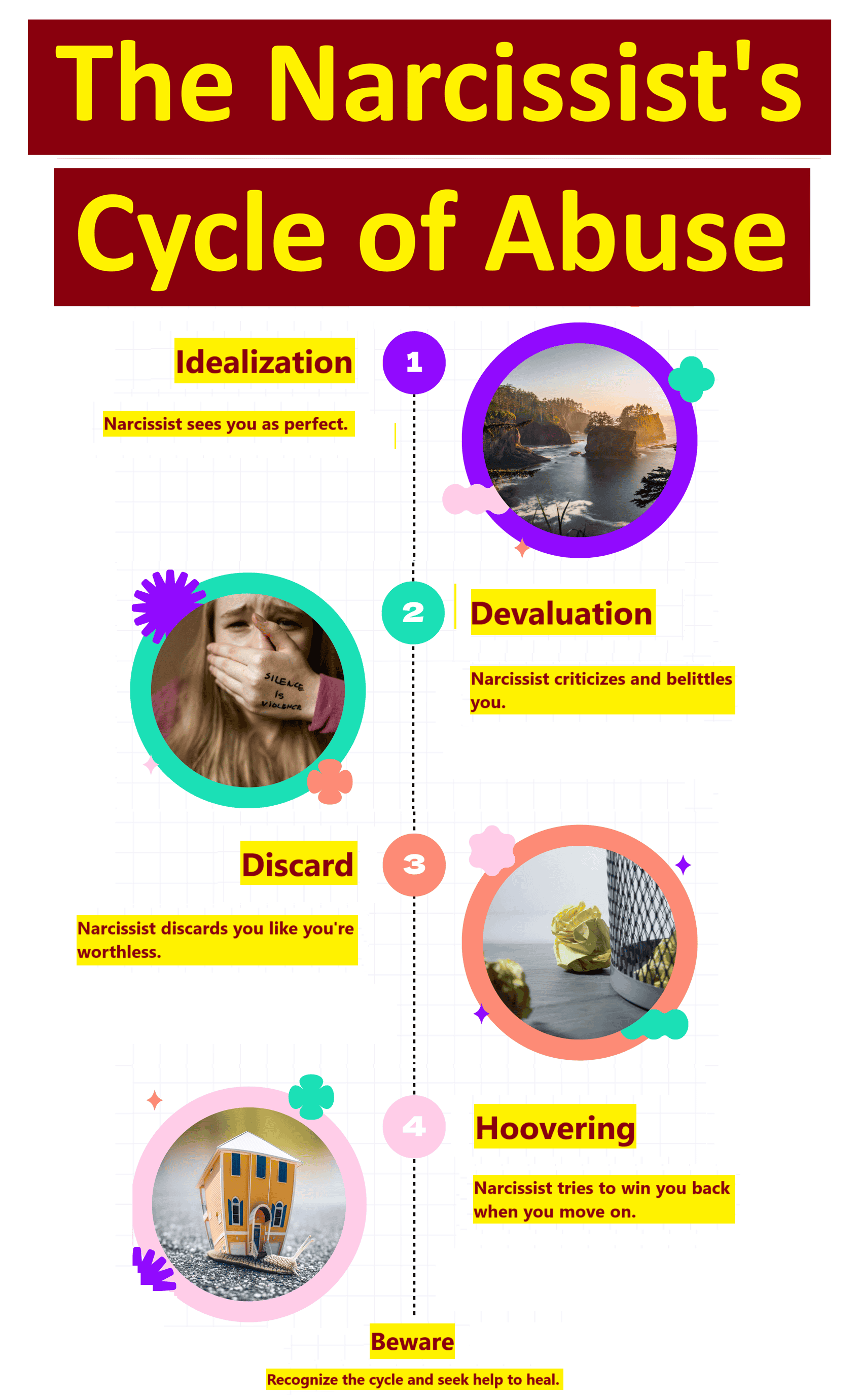A covert narcissist hides their narcissistic traits behind a mask of humility and sensitivity. Unlike their overt counterparts who loudly seek attention, covert narcissists crave validation through indirect means. Self-centeredness manifests subtly, making identification challenging.
Covert narcissists appear humble and empathetic. They avoid direct confrontation, preferring passive-aggressive methods to manipulate situations.
Differentiating between someone genuinely modest and a covert narcissist requires close observation of their behavior patterns.
1. Subtle Manipulation
Covert narcissists use subtle manipulation to control others. They might employ guilt-tripping or play the victim to get their way.
Unlike overt narcissists, their tactics are not as obvious and can often go unnoticed by those around them.
2. Hidden Sense of Superiority
A covert narcissist harbors a hidden sense of superiority. Although they may appear humble, they secretly believe they are better than others.
This can manifest in backhanded compliments or dismissive attitudes towards others’ achievements.
3. Hypersensitivity to Criticism
Hypersensitivity to criticism is a key trait. Covert narcissists take even the smallest critique as a personal attack.
They react defensively and are quick to point fingers at others to deflect attention from their perceived flaws.
4. Lack of Empathy
Covert narcissists display a lack of empathy. They struggle to understand or care about others’ feelings and often remain emotionally detached in situations where empathy is necessary.
5. Need for Control
The need for control is prominent in covert narcissists. They exert control through passive-aggressive behaviors and subtle manipulation.
This driving force helps them maintain their sense of superiority and avoid feeling vulnerable.
6. Avoidance of the Limelight
Unlike overt narcissists, covert ones avoid the limelight. They prefer to stay out of focus but still manipulate others to feel their influence.
A behavior like this allows them to operate without drawing too much attention to their narcissistic tendencies.
7. Passive-Aggressive Behavior
Passive-aggressive behavior is a hallmark of covert narcissism. Covert narcissists may silently seethe with resentment, expressing their displeasure through indirect means such as sarcasm or procrastination.
8. Difficulty in Relationships
Covert narcissists often struggle with relationships. Their lack of empathy, need for control, and passive-aggressive behavior can strain interactions, making it hard for them to establish and maintain meaningful connections.
9. Distorted Self-Image
A covert narcissist possesses a distorted self-image. They may engage in self-deprecation to fish for compliments while secretly believing they are superior.
This dichotomy helps them maintain their facade while feeding their narcissistic ego.
10. Internal Conflict
Internal conflict is common among covert narcissists. They battle between their inflated self-view and underlying insecurities. This inner turmoil drives many of their manipulative and defensive behaviors.
11. Projection of Faults
Projection of faults onto others is a frequent trait. Covert narcissists deflect blame by attributing their own flaws and mistakes to those around them.
Deflecting helps them maintain their self-image and avoid taking responsibility.
12. Emotional Withdrawal
Covert narcissists often engage in emotional withdrawal. They might isolate themselves or give the silent treatment to those who challenge their sense of superiority.
The withdrawal serves as both a defense mechanism and a means of control.
Negative Effects of Covert Narcissism
On Personal Relationships
Covert narcissism affects personal relationships negatively. These individuals often prioritize their needs above others, masking their self-interest with humility.
They seek constant validation, creating an emotional drain. Manipulative behaviors emerge, making you feel responsible for their emotional state. Empathy is lacking, leaving you unsupported during tough times.
Relationships become strained due to their hypersensitivity to criticism. Even minor comments can lead to significant conflict, causing further emotional distance.
On Professional Environments
In professional environments, covert narcissists create disruptive atmospheres. Their hidden superiority affects team dynamics.
They take credit for others’ work subtly and often play the victim to gain sympathy. This can lead to resentment among colleagues.
Passive-aggressive behaviors cause communication issues, hindering project progress. They avoid direct confrontation, leading to unresolved conflicts.
Their need for control results in micromanagement, stifling creativity and initiative within the team. Understanding these impacts helps in navigating workplace interactions more effectively.
How to Deal with Covert Narcissists
In Personal Interactions
Understanding covert narcissists’ behavior can help manage personal interactions. Implement specific strategies to protect yourself:
- Set Boundaries
Define clear personal boundaries. Covert narcissists (people such as friends or family members) often push limits to gain control, so establishing non-negotiables is essential. - Limit Emotional Engagement
Keep emotional engagement minimal, focusing on objective interactions. Excessive emotional investment provides leverage for manipulation. - Use Assertive Communication
Communicate assertively, stating facts without being confrontational. Covert narcissists interpret confrontation as a threat, leading to more manipulative behavior. - Self-Care Practices
Prioritize self-care. Engage in activities you enjoy and that help you relax, reducing the emotional drain caused by interactions with covert narcissists. - Seek Support
Connect with supportive friends or family who understand the situation. Their external perspectives can help you stay grounded.
Final Thoughts
Recognizing the traits of a covert narcissist is crucial for protecting your emotional well-being. These individuals often disguise their self-centeredness, making it challenging to identify their manipulative behaviors.
By understanding their subtle tactics, you can better navigate relationships both personally and professionally.
Implementing strategies like setting boundaries and practicing assertive communication can help you manage interactions with covert narcissists.
Prioritizing self-care and seeking support through therapeutic approaches are essential steps in maintaining your mental health.
Empower yourself with knowledge and tools to deal effectively with covert narcissists, ensuring healthier and more balanced relationships.




